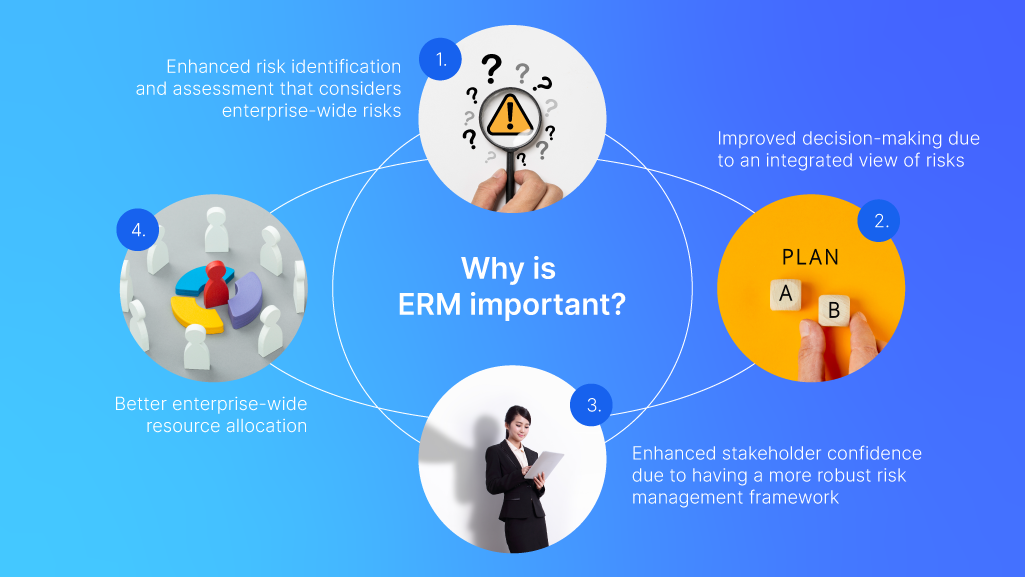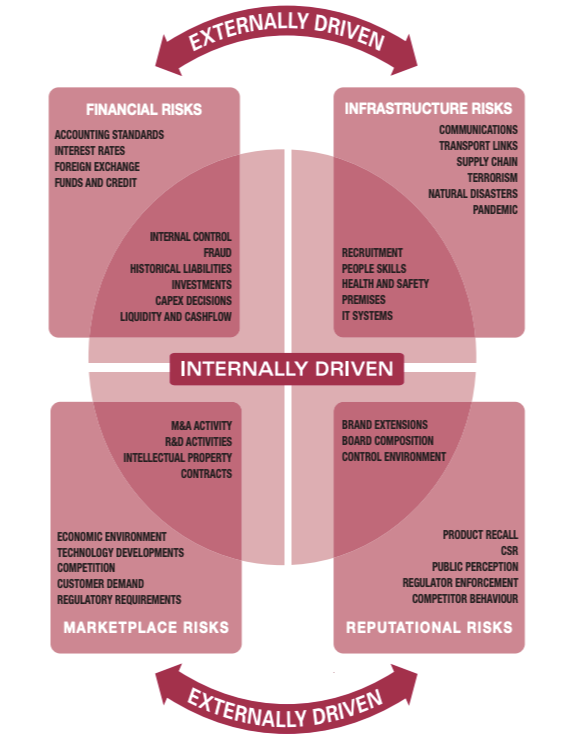Insider threats continue to be a prominent subject for security planning
Wiki Article
Check out the Function of AI in Promoting Ethics and Stability to Fight Insider Threats Efficiently
The integration of AI in organizational frameworks has ended up being critical in attending to expert hazards. By using innovative analytics and real-time monitoring, AI systems can determine discrepancies from ethical habits among employees (Insider threats). This aggressive approach not just enhances conformity however also fosters a setting of count on. As companies increasingly rely upon these technologies, concerns emerge about their efficiency and prospective ramifications for workplace culture. What exists in advance in the development of AI's duty in promoting stability?Comprehending Expert Hazards and Their Influence on Organizations
Organizations usually focus on outside threats, insider hazards position a substantial threat that can threaten safety and stability. These threats arise from individuals within the organization, such as specialists or workers, that might misuse their accessibility to sensitive details for personal gain or destructive intent. The effect of insider dangers can be severe, bring about monetary losses, reputational damages, and legal implications.Elements adding to insider hazards include dissatisfaction with the work environment, lack of oversight, and insufficient staff member training on safety methods. Organizations commonly struggle to determine these threats, as they can be tough to spot till significant damages has actually occurred. Prevention approaches should concentrate on cultivating a culture of trust and responsibility, together with applying robust tracking and reporting systems. By recognizing and dealing with the intricacies of expert threats, companies can boost their security position and shield their valuable possessions from inner dangers.
The Evolution of AI in Workplace Safety
As companies significantly confront diverse safety and security difficulties, the assimilation of expert system (AI) in work environment safety has actually advanced considerably. Initially, AI applications focused mainly on automating fundamental safety procedures, such as gain access to control and security. Nonetheless, advancements in artificial intelligence and information analytics have actually changed AI right into a positive tool efficient in identifying potential hazards and susceptabilities in real-time.Organizations currently utilize AI-driven systems to examine huge quantities of information, allowing them to detect anomalous actions that might indicate expert dangers. This development has actually brought about the growth of sophisticated formulas that can gain from historic occurrences, boosting the system's anticipating abilities. Additionally, AI devices are increasingly utilized to simplify occurrence feedback processes, permitting protection groups to act swiftly and effectively.
Exactly How AI Monitors Worker Actions for Ethical Conformity
Man-made knowledge plays an essential function in keeping an eye on employee habits to ensure ethical conformity within companies. AI systems evaluate huge quantities of information generated by workers, including communications, transactions, and accessibility to sensitive details. By utilizing sophisticated algorithms, these systems can identify discrepancies from developed ethical criteria and business policies.Artificial intelligence designs constantly adjust to recognize patterns of behavior that may suggest moral violations, such as unauthorized information gain access to or unusual deal tasks. Insider threats. On top of that, AI-driven tools can offer real-time signals to monitoring, facilitating timely treatments when potential threats are discovered
The assimilation of AI right into compliance surveillance not just boosts the organization's capacity to copyright stability however also cultivates a society of liability among employees. By advertising openness, AI systems work as a deterrent versus unethical actions, guaranteeing that employees continue to be aligned with business values and honest criteria.
Examining Patterns: Determining Risky Habits With AI
An expanding number of organizations are leveraging AI to analyze patterns that might show dangerous habits among employees. By making use of innovative algorithms, these systems can sort through substantial quantities of data, identifying abnormalities in customer habits that could recommend prospective insider hazards. AI can identify uncommon access patterns to delicate info, such as employees accessing documents outside their typical scope of job or during irregular hours. Furthermore, behavioral analytics can highlight regular changes in a staff member's communication design or collaboration behaviors, which may indicate underlying problems. This proactive strategy allows organizations to pinpoint threat aspects before they rise into considerable threats. The assimilation of AI into keeping track of techniques not only improves safety yet also promotes a society of liability and ethical habits. By recognizing these patterns, companies can better comprehend the behavior characteristics within their workforce, ultimately promoting a much safer and more ethical work atmosphere.
Real-Time Insights: Immediate Responses to Prospective Dangers
Real-time understandings through predictive analytics and automated alert systems play a crucial role in dealing with potential dangers to values and honesty. By leveraging these technologies, organizations can anticipate risky behaviors and respond quickly to alleviate dangers. This positive method enhances liability and cultivates a culture of stability in different environments.Anticipating Analytics Applications

Automated Alert Systems
Anticipating analytics gives a structure for companies to enhance their responsiveness to ethical issues with automated alert systems. These systems make use of real-time data to check tasks, discovering abnormalities that may symbolize possible expert threats. By leveraging artificial intelligence algorithms, automated signals can determine patterns of behavior about his that depart from developed standards, allowing for quick intervention. This immediacy is essential in mitigating risks connected with unethical practices. Additionally, automated alert systems can enhance interaction amongst appropriate stakeholders, ensuring that prospective risks are addressed immediately and effectively. As companies increasingly depend on AI-driven remedies, the integration of automated alert systems will certainly play a pivotal duty in fostering a culture of principles and honesty, ultimately protecting business properties.Fostering a Culture of Count On With AI-Driven Openness
AI-driven openness can substantially enhance count on within organizations by promoting responsibility and open interaction. Via real-time surveillance solutions, stakeholders can acquire insights into processes and decision-making, promoting a culture of integrity. Data-driven decision-making additionally sustains this openness, allowing notified options that straighten with moral criteria.Enhancing Openness and Responsibility
Exactly how can companies successfully promote a culture of depend on? By improving transparency and responsibility with the tactical use of artificial intelligence. AI can help organizations systematically track decision-making processes, making sure that activities straighten with established honest requirements. This transparency allows employees to see the rationale behind policies and choices, decreasing ambiguity and cultivating a feeling of fairness. Furthermore, AI-driven devices can help with clear communication regarding assumptions and obligations, encouraging individuals to take ownership of their activities. As responsibility becomes embedded in the organizational society, workers are much more most likely to involve in ethical actions, understanding their actions are kept an eye on and assessed. Ultimately, this technique cultivates a setting where count on can flourish, substantially reducing the risk of insider threats.Real-Time Tracking Solutions
As organizations progressively seek to promote a culture of depend on, real-time monitoring options emerge as a crucial tool in improving transparency. These AI-driven systems constantly track tasks, providing understandings into individual actions and prospective anomalies that might indicate insider hazards. By executing such surveillance services, companies can proactively recognize risks, making sure prompt reactions to dubious tasks. This not only safeguards sensitive details but likewise enhances a dedication to ethical methods. The transparent nature of real-time tracking aids construct employee confidence, as individuals are conscious that their activities are being observed for the higher good. Inevitably, these solutions serve to cultivate a workplace environment grounded in count on, responsibility, and honest stability, essential for reducing insider risks efficiently.
Data-Driven Decision Making
Real-time monitoring solutions prepared for data-driven decision production, which greatly enhances business openness. By leveraging AI modern technologies, companies can examine huge amounts of data to determine abnormalities and patterns a sign of possible insider dangers. This analytical method allows stakeholders to make informed visit this site right here choices based in empirical evidence, fostering a culture of trust fund amongst workers. Openness in decision-making procedures, reinforced by AI-driven insights, urges liability and honest behavior. Additionally, it permits organizations to proactively deal with vulnerabilities, making certain that activities taken are justified and connected plainly. Because of this, the implementation of data-driven approaches not only mitigates threats connected with insider hazards however also enhances the values of honesty and honest conduct within the organizational structure.Future Trends: The Duty of AI in Enhancing Work Environment Ethics
While companies progressively turn to expert system for functional efficiency, the possibility of AI to enhance office ethics is obtaining importance. Future fads indicate that AI will certainly play a vital function in developing moral frameworks and guidelines, permitting organizations to browse complex ethical predicaments. By assessing vast quantities of information, AI can identify patterns of dishonest behavior and offer understandings that promote transparency and liability.Furthermore, AI-driven devices can facilitate real-time tracking of staff member communications, guaranteeing adherence to honest criteria. This aggressive approach not only alleviates expert hazards yet also cultivates a culture of stability. As companies welcome AI technologies, they need to additionally focus on ethical programming and algorithmic predisposition reduction to ensure justness.
In this advancing landscape, the assimilation of AI in ethical practices represents a transformative shift, fostering an environment where integrity is not merely expected but systematically reinforced.
Frequently Asked Questions
How Does AI Differentiate Between Benign and Malicious Actions?
AI differentiates between malicious and benign activities by assessing patterns in customer actions, utilizing maker discovering formulas to identify anomalies, and evaluating contextual information to identify whether actions align with established norms or show possible dangers.Can AI Equipment Replace Person Judgment in Honest Decision-Making?
AI tools can not fully change human judgment in moral decision-making. While they can examine data and identify patterns, the nuanced understanding of context, worths, and ethical implications still requires human understanding and discernment.What Are the Privacy Implications of AI Monitoring Staff Member Habits?

Exactly How Can Organizations Guarantee AI Algorithms Are Ethically Designed?
Organizations can assure AI formulas are ethically designed by applying clear advancement processes, entailing diverse stakeholders, conducting routine audits, and adhering to established moral frameworks that prioritize justness, responsibility, and respect for customer privacy and you can look here civil liberties.What Training Is Required for Staff to Recognize Ai's Honest Role?
Team training need to incorporate foundational AI ethics, information privacy, and prejudice understanding. Workshops, study, and interactive sessions can enhance understanding, ensuring workers recognize AI's honest implications and its duty in promoting honesty within the organization.
Fabricated intelligence plays an essential function in monitoring staff member behavior to ensure moral compliance within companies. The assimilation of AI into checking methods not just improves safety but also fosters a society of responsibility and moral behavior. While organizations significantly deal with moral predicaments and prospective stability violations, anticipating analytics applications provide timely insights that can aid alleviate these risks. Predictive analytics offers a structure for companies to improve their responsiveness to honest concerns with automated alert systems. Future trends indicate that AI will certainly play a necessary role in establishing ethical structures and standards, allowing companies to navigate intricate ethical issues.
Report this wiki page